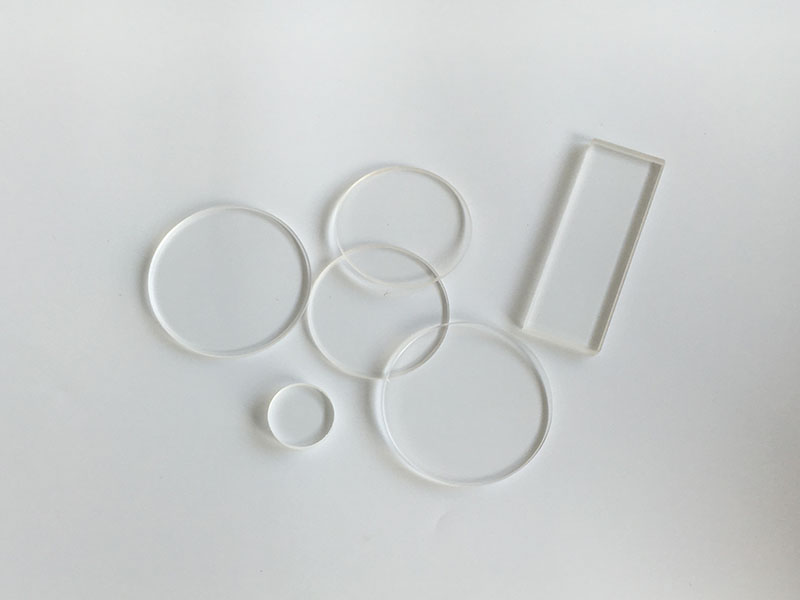Factors affecting Glass Density
Click:
-Time:2022-06-02 10:45
1. effect of temperature on glass density
With the increase of temperature, the density of glass decreases. For general industrial glass, when the temperature rises from room temperature to 1300 ℃, the density decreases by about 6 ~ 12%. The decrease of density in the range of elastic deformation is related to the coefficient of thermal expansion of glass.


2. effect of heat treatment on glass density
Within the annealing temperature range, the density change of glass has the following laws:
(1) The density of quenched (quenched) glass with the same composition is lower than that of annealed (slow cooled) glass when the glass is cooled from high temperature.
(2) The density of quenched and annealed glass tends to the equilibrium density at a certain annealing temperature after a certain time.
(3) The faster the cooling rate, the higher the temperature deviating from the equilibrium density, and the higher the temperature.
According to these rules, the annealing quality can be judged by the density value in production.
Glass crystallization is a process of structural ordering, so the density of glass increases after crystallization. The density of glass after crystallization (including microcrystallization) mainly depends on the type of precipitated crystal phase. Therefore, different crystalline phases can be obtained by controlling the heat treatment conditions, and glass ceramics with different physical properties can be prepared.
3. effect of pressure on glass density
When the glass is subjected to high pressure or ultra-high pressure, the density of the glass will change, and at a certain temperature, the density of the glass will increase with the increase of pressure. This is because after high pressure, the volume of the glass network structure decreases and the glass density increases. For example, quartz glass can withstand 200 × After 108pa pressure, the density increases from 2.22 g/cm3 to 2.61g/cm3. After removing the pressure, the increase in density can be kept at room temperature for a long time. The glass with this density can be restored to its original state only after re annealing.
4. effect of glass composition on glass density
The change of glass density is not only related to pressure, but also to the composition of glass. Under high pressure, the density of different glass compositions varies greatly. Generally speaking, the glass with many network forming ions has large voids, so the density increases greatly under pressure. However, the density of glass containing many ions outside the network changes little after pressurization because they fill the gap of the network.
Related articles
- Performance and Purchase Precautions of Industrial Mirrors
- Classification and Properties of Heat Resistant Glass Sheets
- Thermal Properties and Types of High Temperature Resistant Gl
- Application of flange mirror glass
Recommend
- What Is the High Temperature Resistance of High Temperature R
- Factors affecting Glass Density
- Characteristics and Application of Glass Mirrors
- Characteristics of High Pressure Resistant Glass
- Introduction to Liquid Level Gauge Glass
- Performance and Purchase Precautions of Industrial Mirrors
- Factors Affecting Physical Tempering
- Classification and Properties of Heat Resistant Glass Sheets
- Thermal Stability of Peephole Glass
- Characteristics of Tempered Glass and Semi Tempered Glass
Rank
- Application of high temperature resistant glass
- Precautions in the process of quartz tube cutting and picklin
- ultra-thick tempered sight glass for submarine
- What are the advantages and disadvantages of quartz tube heat
- The process of toughening of borosilicate tempered sight glas
- Where is high pressure resistant glass used?
- Introduction of elliptical quartz tube and oval quartz tube
- Introduction to the Characteristics of Quartz Glass Tube 1
- High temperature boiler sight glass for boiler
- Introduction to cold working process of quartz glass
Latest articles
- What Is the High Temperature Resistance of High Temperature R
- Factors affecting Glass Density
- Characteristics and Application of Glass Mirrors
- Characteristics of High Pressure Resistant Glass
- Introduction to Liquid Level Gauge Glass
- Performance and Purchase Precautions of Industrial Mirrors
- Factors Affecting Physical Tempering
- Classification and Properties of Heat Resistant Glass Sheets
- Thermal Stability of Peephole Glass
- Characteristics of Tempered Glass and Semi Tempered Glass

